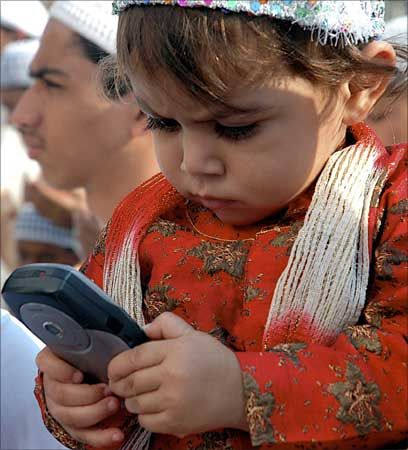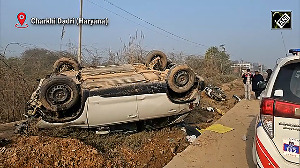 Santanu Ganguly, a businessman from Kolkata, visits Bangladesh every three months.
Santanu Ganguly, a businessman from Kolkata, visits Bangladesh every three months.
In October, when he landed at Dhaka airport Ganguly was surprised by a Grameenphone advertisement offering subscribers a minute of free talk time for every dropped call.
Ganguly has learnt to live with frequent call disconnections in India, even after changing mobile operators over the past couple of years. He found fewer calls dropping on his temporary connection from Grameenphone.
And, it was honouring its commitment to provide free talk time for dropped calls.
Grameenphone, with the highest rate of call drops in Bangladesh, came up with this offer after the Bangladesh Telecommunication Regulatory Commission toughened rules on quality of service, including setting a limit for call drops at two per cent, with stiff fines for violations. Banglalink, the country’s second largest mobile operator, has followed suit with its ‘Minute back on call drop’ offer.
Internationally, the limit for dropped cellphone calls is two per cent. Mostly, the actual average disconnection rate is far lower.
All mobile operators in India officially abide by the Telecom Regulatory Authority of India’s two per cent rule. Yet one in every five or 10 mobile calls in the country drops, depending on the area and time of the day.
The problem arises because there is no standard definition of a dropped call. What consumers consider a disconnection may not qualify as such for the mobile operator. Operators, therefore, manage to stay on the right side of the rules.
“This (Grameenpone) is an interesting offer.
"Indian operators could also look at such initiatives,” says Arpita Pal Agrawal, executive director and leader (telecom) at consultancy firm PricewaterhouseCoopers.
However, she points to technical hurdles. In Bangladesh, a call drop has more to do with network quality.
In India it is linked to spectrum shortage. Many more subscribers in India are squeezed into the same amount of air waves, she adds.
“There are many reasons why a call drops, including network infrastructure, spectrum allocation, traffic, as well as the handsets that consumers use. As long as operators abide by the quality of service standards, there is no need for such offers.
If such an offer is initiated, it will throw up contentious issues between operators and subscribers, essentially pre-paid users,” says Rajan Mathews, director-general, Cellular Operators Association of India.
Agrawal says operators here will also have to pay interconnection charges for the free minutes if they are to reimburse consumers for disconnected calls.
Bharti Airtel, the country’s largest operator that also operates in Bangladesh, had launched such an initiative in 2004 for a limited period.
b In Andhra Pradesh, Bharti Airtel had offered money back to customers for dropped calls.
If disconnected, a post-paid user would have to repeat the call within five minutes, and pre-paid users would be refunded Rs 50 if they surrendered their SIM cards within five days of purchase. However, the offer was discontinued, and Bharti Airtel did not revive it.
“The industry is under stress and such initiatives would have a negative impact on the profitability of telecom companies,” Mathews says.
“Consumers lose more if a call is disconnected in just a few seconds and if the user has to pay for the whole minute. With a per second cycle in India, consumers do not actually lose much,” he adds.
Mathew says operators need more spectrum to improve quality of service. Also, there are issues like radiation limits on base stations and rules about the numbers of mobile towers.
WHY NOT IN INDIA?
- All mobile operators in India officially abide by the Telecom Regulatory Authority of India’s rule that dropped calls should remain below two per cent .
- Yet, one in every five or 10 mobile calls in the country drops, depending on the area and time of the day
- The problem arises because there is no standard definition of a dropped call
- What consumers consider a disconnection might not qualify as such for the mobile operator. Operators, therefore manage to stay on the right side of the rule











 © 2025
© 2025